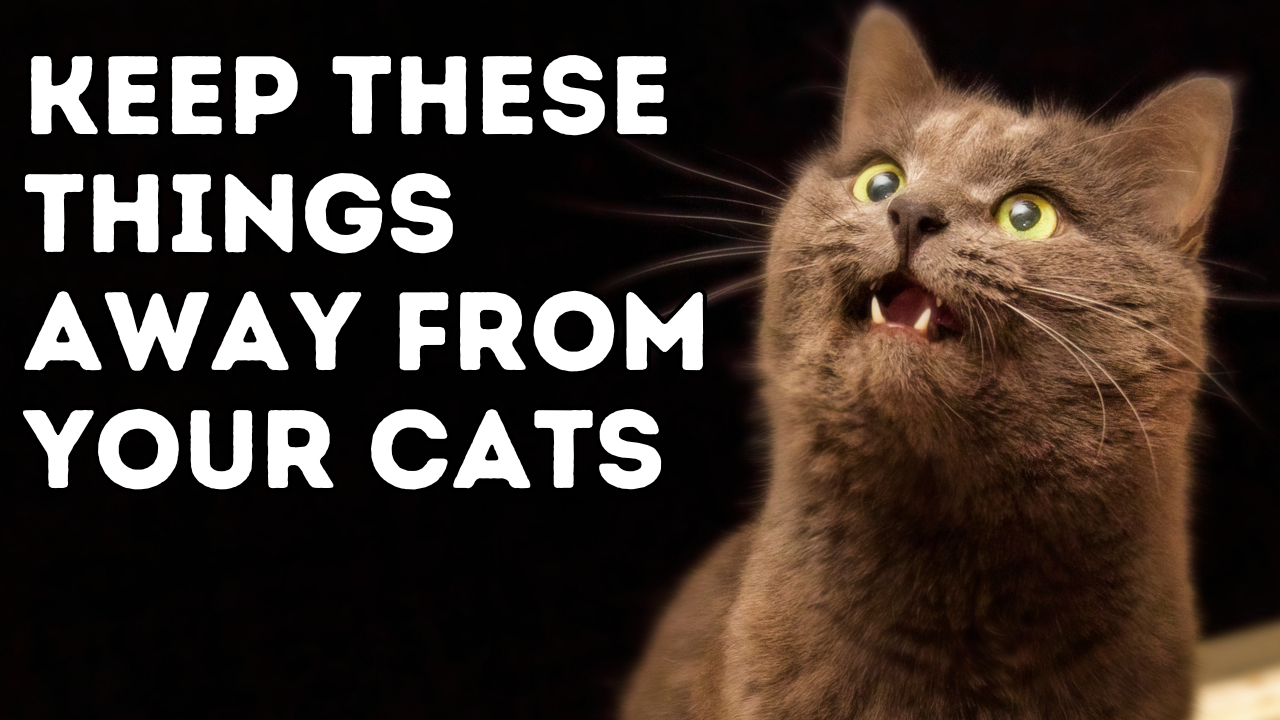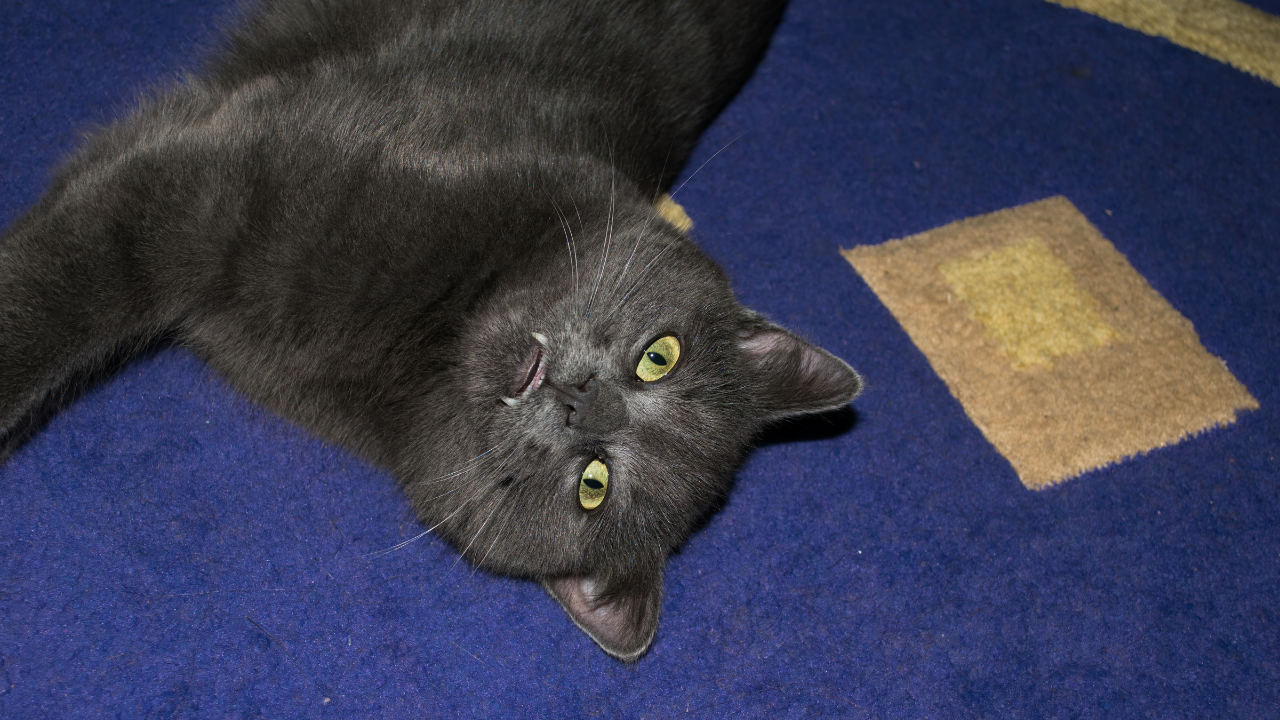Dangerous for Cats: Plants and Meds You Should Keep Away

Understanding the Toxic Sensitivities of Cats vs. Dogs: What You Need to Know
As a veterinarian, I’ve seen firsthand how our feline friends differ from dogs, especially when it comes to their sensitivities to certain toxins. While we often give dogs anti-inflammatory medications for various conditions, these same medications can be extremely toxic to cats. That’s why it’s so important to find alternatives that are safe and effective for our cats.
Why You Should Avoid Common Dog Anti-Inflammatories for Cats
Many anti-inflammatory drugs that are commonly prescribed for dogs can pose serious health risks to cats. Their bodies process these medications differently, which can lead to severe toxicity or even fatal reactions. As a result, it’s crucial to explore other options when it comes to managing pain and inflammation in our feline companions.

The Safe and Effective Option: CBD for Cats
One of the best alternatives I recommend is CBD (cannabidiol). CBD is a natural pain reliever that has shown effectiveness in reducing inflammation and relieving pain in cats. It’s a safe option, and when administered correctly, it can help improve the quality of life for cats suffering from arthritis, chronic pain, or other conditions.
You can try Dr. Jones’ ULTIMATE CBD for your cat — a trusted supplement that works wonders for pain relief.
Supporting Arthritis in Cats with ULTIMATE Feline
In addition to CBD, another great supplement to consider for your cat is ULTIMATE Feline. This product contains both Glucosamine and Chondroitin, two key ingredients that have been proven to help with arthritis. If your cat is dealing with joint pain or stiffness, these ingredients can offer significant relief and promote mobility.
It seems like a great idea to support your cat’s joint health with this combination of powerful ingredients.

Click Here to Get Your Bottle of ULTIMATE Feline
Taking care of your cat’s pain and inflammation doesn’t have to involve dangerous or toxic drugs. With options like CBD and ULTIMATE Feline, you can provide safe, effective relief for your cat’s condition.

6 Common Serious Cat Toxins That Many People Are Not Aware Of
As a veterinarian, I’ve seen my fair share of toxicities in cats—sometimes from substances people assume are harmless. Cats are especially sensitive to many substances, and what may seem safe for humans or even other pets can be deadly to them. Today, I want to share with you six common toxins that pose serious risks to cats, which many pet owners might not even realize.
1. Acetaminophen (Tylenol)
Acetaminophen, commonly known as Tylenol, is a synthetic non-opiate derivative of p-aminophenol. While it’s commonly used for pain relief in humans, it can be deadly for cats. Even small amounts, as little as 10 mg/kg, can lead to toxicity in cats. Tylenol works by inhibiting prostaglandin synthesis, but in cats, this can cause significant liver and blood toxicity, specifically methemoglobinemia.
What to Watch For:
- Increased respiratory rate
- Pale or muddy mucous membranes
- Hypothermia
- Tachycardia
- CNS depression, anorexia, vomiting
- Facial edema and extremity swelling
- Salivation, diarrhea, and in severe cases, coma or death
A regular-strength Tylenol tablet contains 325 mg, and extra-strength ones contain 500 mg. The concentration in children’s suspension liquid is 32 mg/ml, while the infant version is much stronger at 100 mg/ml. If you suspect your cat has ingested Tylenol, it’s crucial to seek immediate veterinary help.
2. Lily Toxicity
Lily plants—particularly Easter lilies, tiger lilies, Asiatic hybrid lilies, and daylilies—are highly toxic to cats. Even small amounts of a few leaves or petals can be fatal. The flower part of the lily is more toxic than the leaves, and ingestion of just 8 flowers could cause death within 4-8 hours.
What to Watch For:
- Salivation, vomiting, and anorexia within the first 1-3 hours
- Polyuria/polydipsia (increased urination and thirst)
- Dehydration
- Renal failure (which may progress to anuric renal failure)
If your cat ingests any part of a lily, immediate veterinary treatment is essential, as the effects can be fatal within hours.
3. Phosphate Enemas
It may surprise many, but common household products like Fleet® enemas, which are often used to treat constipation in children, can be extremely toxic to cats. These enemas contain sodium phosphate and biphosphate, substances that can lead to severe electrolyte imbalances when absorbed.
What to Watch For:
- Lethargy and ataxia (loss of coordination)
- Miosis (constriction of the pupils)
- Arrhythmias
- Muscle tremors and seizures
Even though these products are meant for children, they are far too potent for cats. The high concentration of phosphate can lead to cerebral dehydration and hypocalcemia, so always avoid using them on cats.
4. Kaopectate and Pepto-Bismol® Toxicity
Kaopectate® used to be made with kaolin, pectin, and attapulgite, substances that are not absorbed by the body and are generally safe for cats. However, after 2002, Kaopectate® started including bismuth subsalicylate, which is highly toxic to cats. Salicylates, like aspirin, can cause severe gastrointestinal and renal issues in cats.
What to Watch For:
- Lethargy
- Vomiting, diarrhea, and abdominal pain
- Hematemesis (vomiting blood)
- Melena (black, tarry stool)
- Severe gastric ulceration
Toxicity can occur at doses greater than 25 mg/kg/day, and even a tablespoon of extra-strength Kaopectate® can be harmful to a 5 kg cat. If your cat consumes any form of this product, immediate treatment is required.
5. Meloxicam (NSAIDs)
Meloxicam (Metacam®) is a widely used non-steroidal anti-inflammatory drug (NSAID) for managing pain in cats. While it’s effective, there have been reports of renal failure and death, particularly when administered orally. The recommended dose is 0.025–0.5 mg/kg daily, but adverse effects have been noted with prolonged use or incorrect dosages.
What to Watch For:
- Vomiting and diarrhea
- Decreased appetite
- Lethargy
- Severe kidney damage (which can be fatal)
If your veterinarian prescribes meloxicam for your cat, it’s crucial to follow the dosage carefully. I strongly recommend using it as a one-time injection post-surgery rather than as a daily oral treatment.
6. Benzocaine Toxicity (Topical Anesthetic)
Benzocaine is a common ingredient in topical anesthetics, but it can be toxic to cats if absorbed through the skin or ingested. This substance can cause methemoglobinemia (a condition where hemoglobin is unable to carry oxygen properly) and Heinz body hemolytic anemia.
What to Watch For:
- Cyanosis (blue or purple gums)
- Lethargy, weakness, or uncoordinated movements
- Difficulty breathing
- Reduced oxygen levels in the blood
If your cat is exposed to benzocaine, decontamination may involve bathing the skin with mild soap or inducing vomiting if ingested.
Conclusion: Be Aware and Prepared
As a pet owner, it’s essential to be aware of the dangers around your home and what might be toxic to your cat. Many of these substances can cause rapid and severe reactions, so knowing the signs of poisoning and acting quickly can save your cat’s life.
A Few Tips for Safety:
- Keep toxic substances out of reach of pets, and always check the labels of over-the-counter products.
- If you suspect your cat has ingested something harmful, contact your veterinarian immediately. At the very least, having 3% hydrogen peroxide on hand to induce vomiting can be lifesaving (use 1 teaspoon for cats, and repeat after 10 minutes if they don’t vomit).
If your cat is in pain or suffering from any of these toxins, there are natural alternatives to help manage their discomfort.
Dr. Jones’ ULTIMATE CBD is a fantastic option for cats in pain, offering a natural anti-inflammatory effect. Additionally, Dr. Jones’ ULTIMATE Feline Health Formula, which includes glucosamine and chondroitin, may help reduce joint inflammation—ideal for older arthritic cats.
P.S. I have seen all of these toxicities in practice, especially from Tylenol. Be vigilant about what’s safe and what’s not—sometimes even veterinarians may not be aware of these unique toxins in cats.











